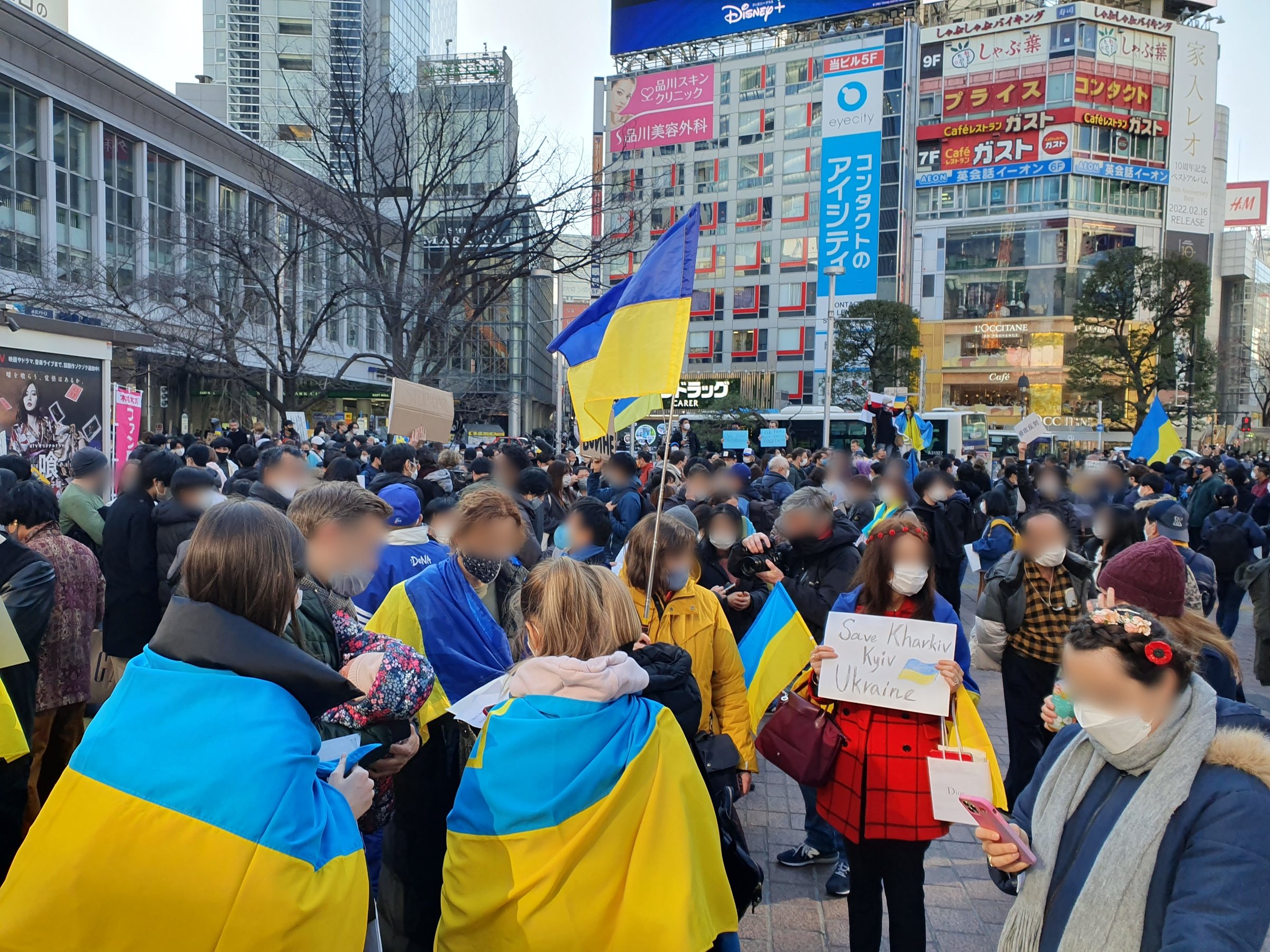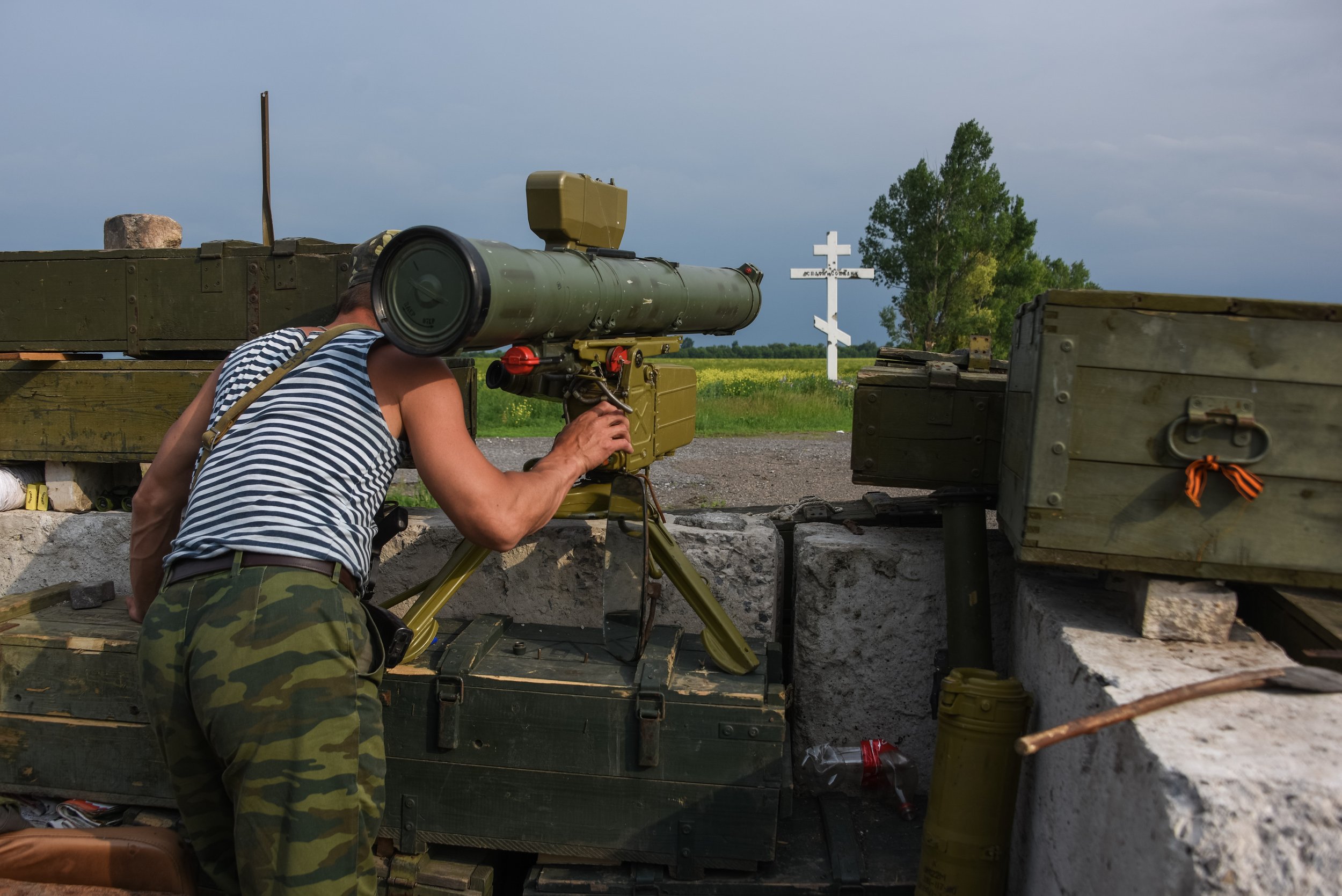Photos courtesy of WikiMedia Commons
As Russia advances its invasion of Ukraine, air strikes have prompted many Ukrainian citizens to flee the country. Nations including the U.S. are leveling sanctions of Russia in response to the invasion.
By Sophie Soloway ’23 & Lauren Cincotta ’25
Global Editor | Staff Writer
Early in the morning of Feb. 24, Russian military forces began invading Ukraine. According to NBC News, Russian President Vladimir Putin declared a “special military operation” in eastern regions of Ukraine, but in a matter of hours, land attacks as well as air strikes occurred in eastern and northern areas of the country.
Bryan Nakayama, visiting lecturer in International Relations and Politics, noted that to him, this invasion was not unexpected.
“I had a strong suspicion that Russia was going to invade in December because … the military deployment that Russia was making was consistent with an invasion [and] Putin/Russia seems to have painted themselves into a corner over their demands for Ukraine,” Nakayama said.
As of late Thursday, Feb. 24, there are reports that Russian troops are moving close to the capital of Kyiv. According to CNN, Ukrainian President Volodymyr Zelelnskyy announced that an estimated number of 137 Ukrainian soldiers have been killed since the invasion began. He has also ordered general military mobilization, banning men from ages 18-60 from leaving the country.
In a matter of hours, Russian troops had also taken control of the Chernobyl nuclear reactor. On Thursday, Feb. 24, U.S. President Joe Biden also announced new sanctions against Russia. “Putin is the aggressor. Putin chose this war. And now he and his country will bear the consequences,” Biden said.
He continued outlining sanctions, adding that the U.S. will “impose severe [costs] on the Russian economy, both immediately and over time.” Other world leaders have also taken up economic measures against Russia.
Protests against the invasion are occurring across the world, including in Russia, where protesters have been met by a large police presence.
Over the weekend, there was heavy fighting and shelling in Kyiv as well as in other major cities as the Ukrainian president encouraged citizens to defend their country. According to the British Ministry of [Defense], Russia’s assault was slower than expected “due to acute logistical difficulties and strong Ukrainian resistance,” and Russian forces have sustained significant casualties. Talks were held on Monday morning between Ukraine and Russia. Zelelnskyy commented that he did not expect the talks to have a huge impact on the fighting but that the government was going to participate “so that no citizen of Ukraine would have any doubt that I, as president, did not try to stop the war when there was a small chance.”
Additionally, in the international community, some nations are leveling sanctions on Russia, including some countries taking individual measures against Putin. The European Union has closed their airspace to Russian aircrafts. Countries including the United States have called for the removal of Russian banks from SWIFT, an international banking system, which would severely limit the ability of Russian banks to do international business.
As for the United States, “The U.S. role in the conflict is to minimize direct involvement. Russia’s alerting of their nuclear forces on Sunday indicates a willingness to escalate. The U.S. should continue to levee sanctions and provide limited military aid,” Nakayama concluded.


